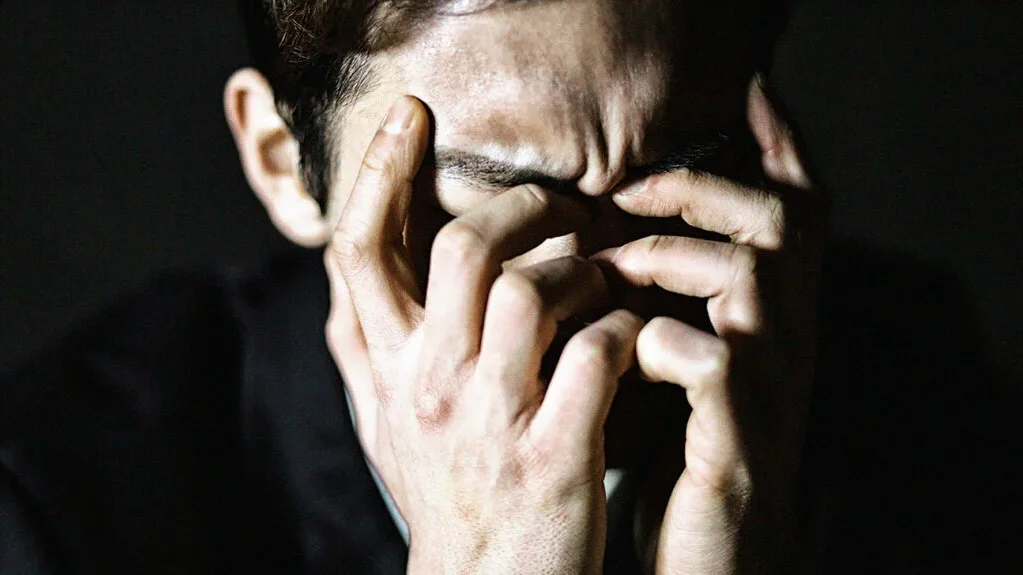Most people, when they hear of PTSD, think of soldiers in combat who come back home with significant problems. My dad was one of these people and it’s what I always thought PTSD was too. PTSD encompasses a lot more than this though.Dad’s PTSD
Back in the 90’s when my dad was deployed to the Balkans for the Kosovo Conflict, PTSD was not very well understood. My dad was involved in helicopter missions and while he was over there he witnessed savage brutality. I don’t even know the extent of what he saw or what he did. By the time he returned home though, he was a haunted, shell shocked, husk of a man.
Because of PTSD, my dad completely changed from a loving, goofy, joking father and husband to a depressed, jumpy, nightmare-ridden person who couldn’t sleep or stay in one place. He constantly left home for days or weeks at a time and it was like he was a completely different person from the one who left for Kosovo. By the time I was 12, my dad had left for good.
At the time, he couldn’t find much help. Neither the medical community nor the public knew much about PTSD and its psychological and physiological effects. As a result of not getting adequate help, my dad began self-medicating with alcohol, and he soon became an alcoholic. By the time he was 47, he was diagnosed with liver failure. When he was 52, he committed suicide. All of this absolutely devastated me, and I have been trying to process what happened to him ever since.
What is PTSD?
When the psychiatrist diagnosed me with PTSD, I scoffed and said, “You don’t know what you’re talking about. My dad had PTSD and he had a real reason for having it. I have never been in war or combat or anything like that so I couldn’t have PTSD too.”
I was so wrong.
PTSD stands for Post Traumatic Stress Disorder. Post meaning “after” a traumatic event. Traumatic, coming from the word “trauma” results from a “deeply distressing or disturbing experience.” Stress is the body and mind’s reaction to the traumatic event or experience and disorder means that it can severely affect your daily functioning. It can last for months or years and sometimes never fully goes away.
Symptoms of PTSD
According to the Mayo Clinic, a person with PTSD suffers from 4 major symptoms:
1) avoidance, 2) intrusive thoughts, 3) negative changes in the mind and personality, and 4) changes in physiological and emotional reactions.
Being barraged by intrusive thoughts and feelings related to the trauma and then avoiding such thoughts as much as possible are universal signs of someone with PTSD. Mind and personality changes can look like an extrovert becoming an introvert, a positive outlook on life turning into a negative one, a general shrinking into self and being less in the world. And being startled from loud noises or bangs, spiraling after being reminded of the trauma, tremors, panic attacks, irritability and aggressiveness, emotional numbness are all physiological and emotional changes that can happen with PTSD.
Do Your Due Diligence
Everyone is different and everyone’s experience is different, so PTSD will look a little different for everyone. Just because you have one common sign of PTSD does not mean you have PTSD; conversely, if you don’t have a symptom that others have that doesn’t mean you don’t have PTSD.
Like every mental illness diagnosis, PTSD is complicated.
If you think you might have PTSD or you know of someone who does, I encourage you to research it (that being said, please don’t go around saying you have PTSD unless you have been officially diagnosed). There’s so much more information out there than when my dad was suffering with it in the 90’s and early 2000’s. Studies have shown that PTSD and depression directly correlates to suicide, so please take it seriously and don’t laugh it off like I did at first!
Next
I’ll talk about my own experience with PTSD and how I combat it and have a coping plan in place.

